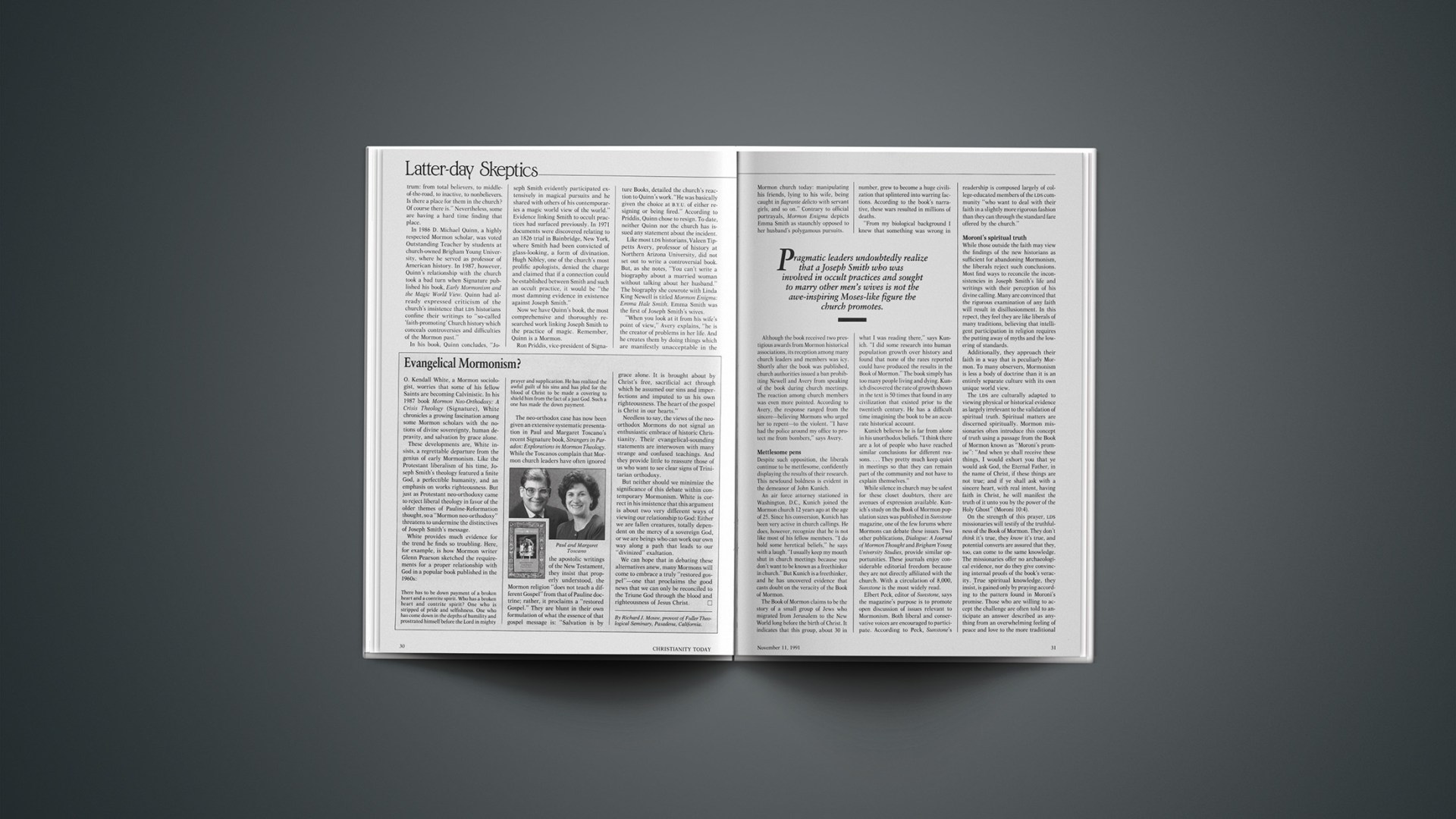O. Kendall White, a Mormon sociologist, worries that some of his fellow Saints are becoming Calvinistic. In his 1987 book Mormon Neo-Orthodoxy: A Crisis Theology (Signature), White chronicles a growing fascination among some Mormon scholars with the notions of divine sovereignty, human depravity, and salvation by grace alone.
These developments are, White insists, a regrettable departure from the genius of early Mormonism. Like the Protestant liberalism of his time, Joseph Smith’s theology featured a finite God, a perfectible humanity, and an emphasis on works righteousness. But just as Protestant neo-orthodoxy came to reject liberal theology in favor of the older themes of Pauline-Reformation thought, so a “Mormon neo-orthodoxy” threatens to undermine the distinctives of Joseph Smith’s message.
White provides much evidence for the trend he finds so troubling. Here, for example, is how Mormon writer Glenn Pearson sketched the requirements for a proper relationship with God in a popular book published in the 1960s:
There has to be down payment of a broken heart and a contrite spirit. Who has a broken heart and contrite spirit? One who is stripped of pride and selfishness. One who has come down in the depths of humility and prostrated himself before the Lord in mighty prayer and supplication. He has realized the awful guilt of his sins and has pled for the blood of Christ to be made a covering to shield him from the fact of a just God. Such a one has made the down payment.
The neo-orthodox case has now been given an extensive systematic presentation in Paul and Margaret Toscano’s recent Signature book, Strangers in Paradox: Explorations in Mormon Theology. While the Toscanos complain that Mormon church leaders have often ignored the apostolic writings of the New Testament, they insist that properly understood, the Mormon religion “does not teach a different Gospel” from that of Pauline doctrine; rather, it proclaims a “restored Gospel.” They are blunt in their own formulation of what the essence of that gospel message is: “Salvation is by grace alone. It is brought about by Christ’s free, sacrificial act through which he assumed our sins and imperfections and imputed to us his own righteousness. The heart of the gospel is Christ in our hearts.”
Needless to say, the views of the neo-orthodox Mormons do not signal an enthusiastic embrace of historic Christianity. Their evangelical-sounding statements are interwoven with many strange and confused teachings. And they provide little to reassure those of us who want to see clear signs of Trinitarian orthodoxy.
But neither should we minimize the significance of this debate within contemporary Mormonism. White is correct in his insistence that this argument is about two very different ways of viewing our relationship to God: Either we are fallen creatures, totally dependent on the mercy of a sovereign God, or we are beings who can work our own way along a path that leads to our “divinized” exaltation.
We can hope that in debating these alternatives anew, many Mormons will come to embrace a truly “restored gospel”—one that proclaims the good news that we can only be reconciled to the Triune God through the blood and righteousness of Jesus Christ.
By Richard J. Mouw, provost of Fuller Theological Seminary, Pasadena, California.










